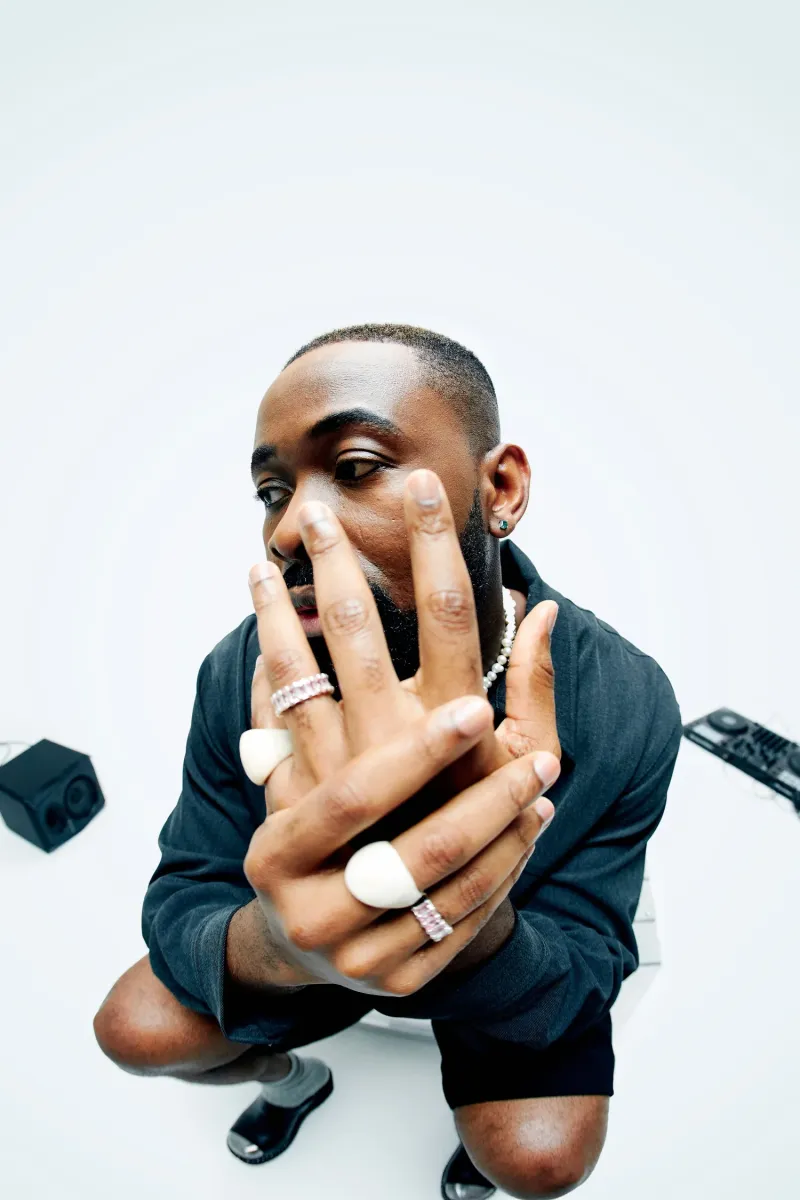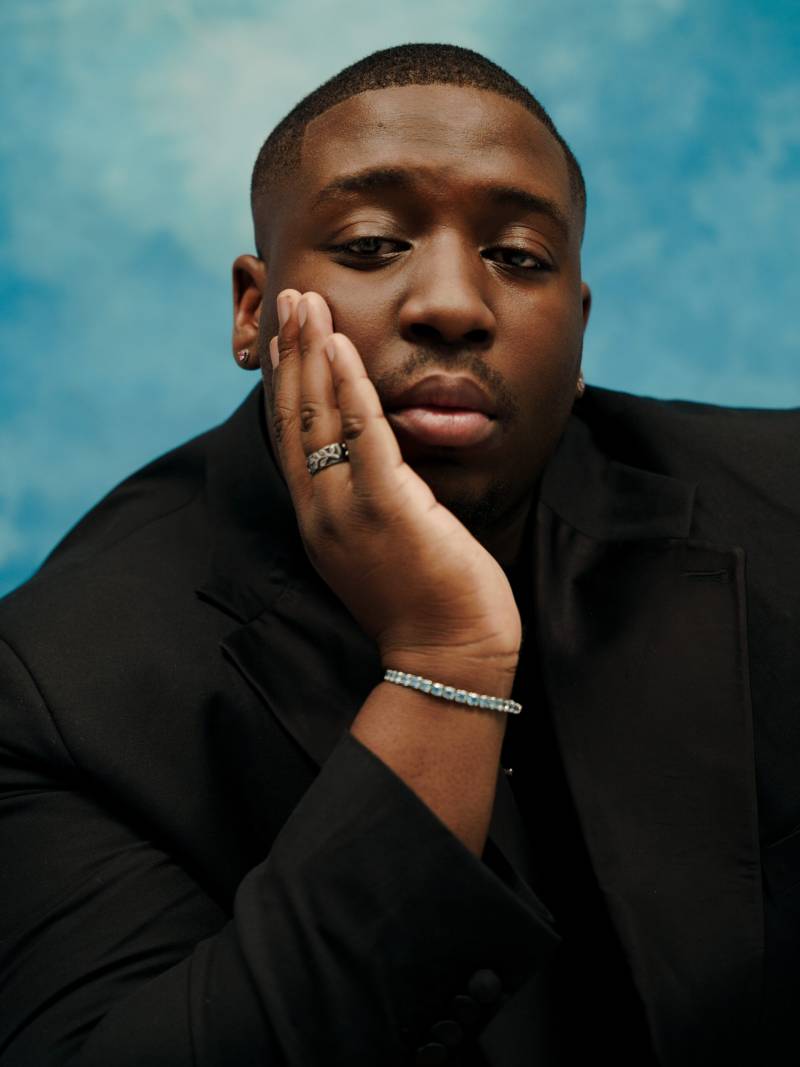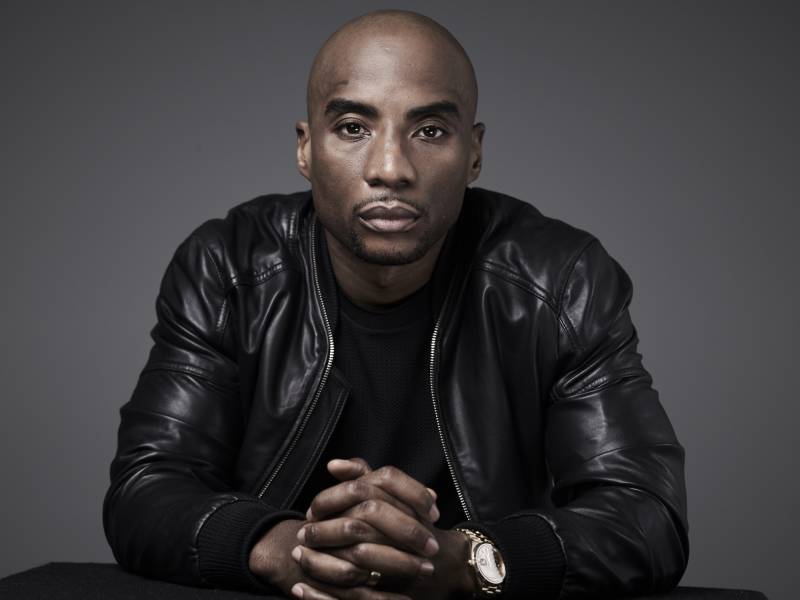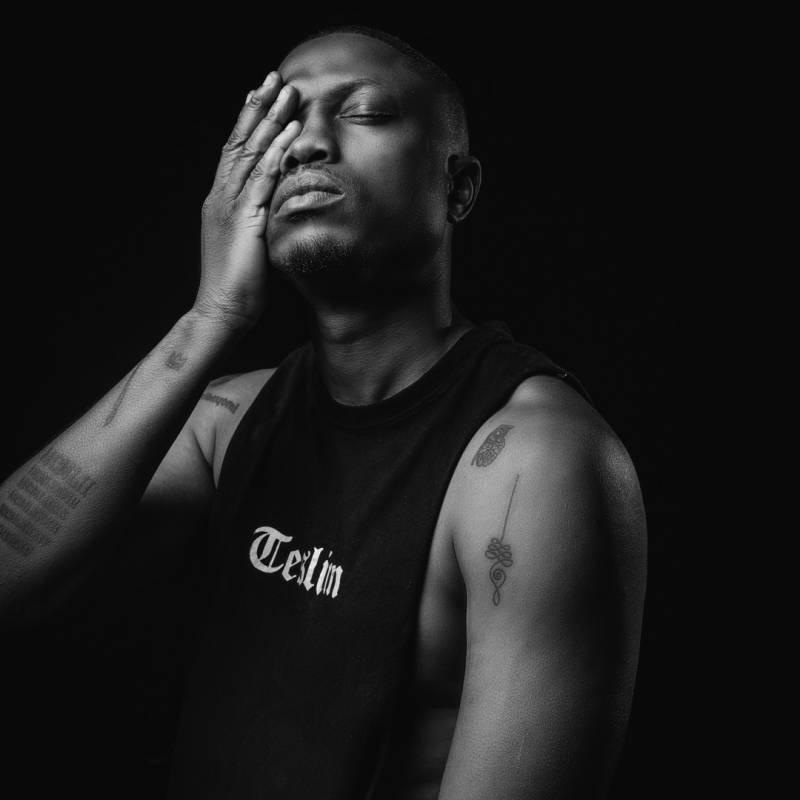Yes, it’s true: African music is still dominating the world stage, as evidenced by hits such as Burna Boy’s “Last Last” and Wizkid and Tems’ “Essence”, the cult-like rise of Asake, and the electrifying, trance-inducing sonics of Amapiano keeping clubland on its toes. As the sounds of the continent continue to evolve within the UK—from the new wave of Afrobeats in the early 2010s, to its younger East London sibling, Afroswing, and the Afro-fusion blend of Afrobeats, dancehall and R&B that reigns today—there has been one figure at the centre of it all from the very beginning: Juls. Famed for his Juls baby producer tag, the DJ and beatsmith born Julian Nicco-Annan in Hackney, East London, has helped connect and construct the Black diaspora’s musical experience through his experimental and ever-evolving production over the last decade. Whether it’s working with UK R&B starlets like Jaz Karis or Afrobeats heavyweights like Wizkid, Juls has built a discography and a reputation for quality production that has seen him lead the way in opening the ears of Black British audiences to the widely unfamiliar sounds of Afrobeats, Amapiano and Alté, amongst others. Initially falling into music production by accident after somebody at university had borrowed his laptop and installed Fruity Loops before returning it, Juls—who, at the time, was studying towards a finance degree—got his first production credit in 2013 via Lagos rap duo Show Dem Camp and their song, “Feel Alright”.
However, it wasn’t until he connected with Mr Eazi in 2014 over social media (a recurring theme in Juls’ collaborations) and produced his breakout hit, “Bankulize”, featuring the Ghanaian hiplife artist Pappy Kojo, that he started to look at producing as a serious career move. In 2016, as Afrobeats became increasingly popular in the mainstream, it was Juls’ work on Mr Eazi’s “Skintight”, featuring Efya, that shone a light on him for his smooth and mellow production—which is undeniably African in style, but always versatile enough to pay homage to wider Black influences, such as dancehall and reggae. Having built his name and network for so long with such attention to detail, it’s no surprise that Juls’ debut album—Sounds Of My World—didn’t drop until October 2021, almost a decade since he entered the game. Following a run of successful mixtapes in Leap Of Faith and Colours, the album put his full talent on show to the world. The fifteen-track offering invited listeners into the sonic inspirations and aspirations of Juls, and he called on all his friends—from Cape Town to Clapton—to feature on the LP. As well as the usual all-star lineup collaborators (Wizkid, Projexx, Tay Iwar), Juls tapped up new faces in his world too, exploring contemporary sounds and places with Sam Wise, Knucks, Maya Andrade, Suspect OTB and George The Poet, to name but a few. It’s been an interesting journey for Juls so far—we sat down with the music maestro to go over the songs that have shaped his life and career up to now.

What’s the perfect track to get the crowd going on their feet if they aren’t moving?
This is a tricky one as it depends on the vibe of where you’re playing. But you can never go wrong with an Amapiano riddim with crazy bass and log drums. I’m gonna go with Vigro Deep’s “Ghost Producer”.
Does your DJing influence your production, and vice versa?
I initially started DJing as a means to get my name out there as a producer. It was around 2012/2013, after a year or two of DJing, that I started making my own beats—predominantly rap-influenced, at first. I was also doing my own hip-hop parties in Ghana every Christmas called Dusk, which ran for about four or five years in a row. My production side came through building a name in Afrobeats and working with the likes of Mr Eazi, Burna Boy, Wande Coal, and wanting to give them a tailored sound.
DJing took a back seat for some time as I began to grow as a producer, but it’s nice to be able to see how the music I make in the studio translates to the crowd. My versatility and catalogue as a producer has undoubtedly made me a more flexible DJ, having played for so many different types of crowds and tastes. A track that best embodies that time that I was growing as a producer has to be “Skintight” by Mr Eazi; it was such a success but it’s also a song that so many associate with the Afrobeats ‘boom’ of that time, and still goes off today! The love that “Skintight”, “So Mi So” and “Gwarn” have received since their release is something that I hope more recent releases from can achieve over time.
Are there any tracks that remind you of a great or wild memory from your Afrobeats days?
Definitely “Kiss Your Hand” by Afrobeats heavyweights R2BEES and Wande Coal. I played that every time at a rave and everyone went crazy.
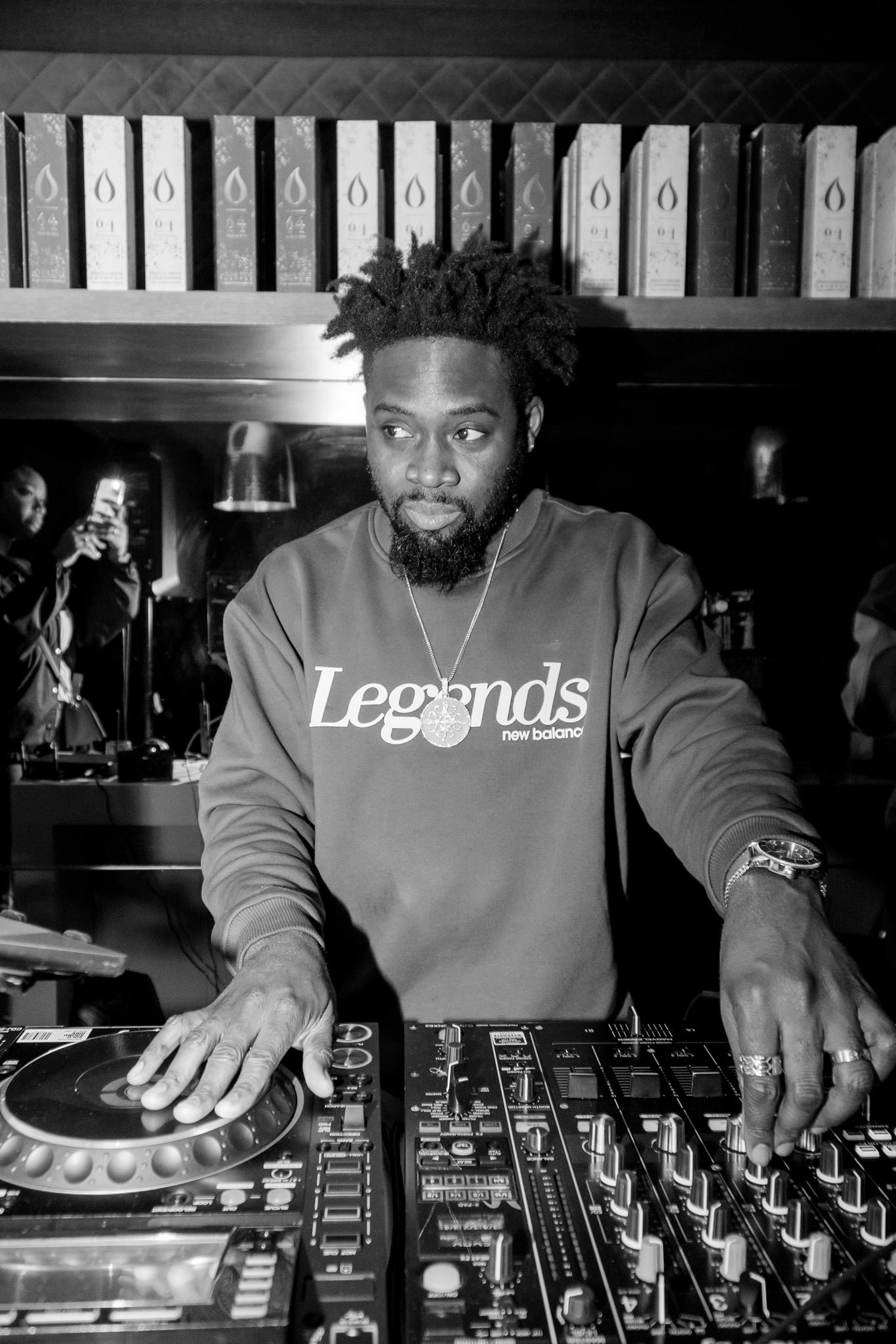
What track reminds you of home?
Ghana is always home. There’s a song by a Ghanaian artist called Kojo Antwi—who, in my opinion, is the greatest Ghanaian artist of all time. For a lot of people, it’s Daddy Lumba, who was the first artist I was ever introduced to when I went to Ghana for the first time aged 10. I vividly remember hearing “Ode Maayea”, which means ‘my love’, when I was on the beach—it was the only cassette my uncle had, and he would play it in his truck while we travelled down the Cape Coast.
The production is so ‘80s, with the old-school Casio keyboard and very basic drums with some reggae elements incorporated, but whenever I want to listen to Ghanaian music, he’s always my first port of call. As I’ve gotten older and discovered more music, I got into other Ghanaian artists, like Pat Thomas, Paapa Yankson, Western Diamonds—all music that played in the house when I was growing up. These sounds introduced me to music and made me love it, long before I ever thought about being a musician myself. We moved to Ghana in 1996 and would spend every summer in London, so I always took in music from an international perspective: Jay-Z, Bob Marley, Diddy, etc. I wasn’t in the UK for the real-time development of Black British music so I had to retrace and rediscover it when I was older and had moved back to England.
Is there a certain track or album that helped shape your personal taste?
It’s hard to pin down one particular song that has shaped my taste but, looking at genres, dancehall and reggae definitely changed my approach to making music. If I had to choose, I would say Damian Marley’s “Road To Zion”.
Which album or track refocuses you after a really hard day?
It has to be “40 Days & 40 Nights (Pt. 2)” by Salaam Remi and Stephen Marley. Your identity is at the heart of your music, and every track tells its own story. Tell us a bit more about that process. I want every instrumental I drop to have a story behind it that’s relevant to me and also the wider Black diaspora. I’ll be releasing a series of instrumentals and prefixes soon, and the first of that is “Tabom Riddim”, a track I made with a Brazilian producer by the name of Vhoor. It leans into my collaborative approach to working, but it’s also got so much meaning: “Tabom” is an expression that roughly translates to ‘everything’s okay’ in Portuguese, but it was also a name given to Brazilian slaves that had been shipped to Ghana during the transatlantic slave trade. They were shipped to a place in Ghana named Jamestown, where my dad’s family is from. This led to the growth of an Afro-Brazilian community within Ghana, which is full circle in my collaboration with a Brazilian producer. Looking at who I’m inspired by in this development, it’s without a doubt the likes of Shy FX, who made such a stamp with a track that pops off in the club almost thirty years since it was released: “Original Nuttah”.
A year on from Sounds Of My World, how do you feel about your debut album and its reception?
Has it exceeded your expectations? I had a lot of dreams and aspirations when making Sounds Of My World, what with it being my debut. I was ambitious about my collaborations—I even wanted Nas on there! The people I did end up working with ended up being the perfect fit because of the mutual respect we have for one another. The creation and reception of the project can definitely be summarised as organic. However, a year on from its release, I can say that Sounds Of My World marks the end of an era of a type of sounds that I’ve been making, which I still can’t quite place my finger on. It touches on so many genres in the diaspora—reggae, Baile funk, dancehall, Afrobeats, Amapiano, hip-hop—all through my own lens, which is African and, more distinctively, Ghanaian.
There are artists that represent every eclectic face of the diaspora, whether it’s Bas being American but originally Sudanese, Niniola and Fireboy DML being Nigerian, Maya Andrade being Cape Verdean or Projexx being Jamaican. It’s a global outlook that I’ve always adapted both when listening to and making music. Moving forward, I want to make less of the mellow, slow-mid tempo sound and explore a more uptempo pace when it comes to making music for myself. In short, I want to make people dance. The sounds of my world have evolved, and my music will reflect that going forward. For me, 2023 is the year of travelling, exploring and experimenting to find clever and creative ways to bring all of these discoveries together.
Complex
